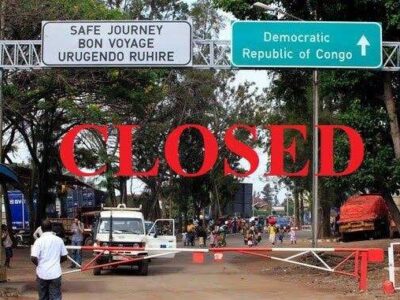Following the continued rapid depreciation of the Zambian Kwacha, which has a huge negative impact on the cost of living and devalues incomes for citizens, the Zambian Central Bank is putting up measures to discourage the use of the United States Dollar in local transactions.
This initiative is commendable and could offer significant economic benefits for the country.
The U.S. Dollar has seen substantial appreciation since the onset of the COVID-19 pandemic, when global inflation surged due to supply chain disruptions.
This increase in living and production costs, exacerbated by rising energy prices from the Russia-Ukraine war, negatively affected global economic growth.
In response, the U.S. Federal Reserve, like many other central banks, raised interest rates to reduce money supply and consumer spending.
However, as the risk-free rate increased in the U.S., so did yields on various asset classes, including government securities.
These higher yields attracted global investors to U.S. assets, driving up demand for the Dollar and subsequently its value.
The appreciation of the Dollar, the world’s reserve currency, has posed problems for many countries, including Zambia.
The rising cost of Dollar-denominated goods and services has increased production costs and reduced the purchasing power of local currencies.
While almost all world currencies have depreciated against the Dollar, the extent of this depreciation varies due to country-specific issues.
Fortunately, there are signs that the U.S. Federal Reserve may start cutting interest rates by the end of this year, as inflation shows signs of easing.
A reduction in U.S. interest rates is likely to cause the Dollar to depreciate, making imports cheaper and potentially boosting global economic growth.
The Bank of Zambia (BOZ) is looking for ways to stem the fall of the Kwacha, recognizing that Zambia’s currency faces its own unique challenges.
One effective way to minimize the impact of these country-specific problems is to limit the use of the Dollar in local transactions.
Reducing the demand for the Dollar in Zambia would lower its value relative to the Kwacha, leading to an appreciating Kwacha.
This move by the BOZ is a step in the right direction and should be supported.
However, the central bank is facing opposition from stakeholders concerned about the disruption of existing Dollar contracts and the potential impact on tourism.
These concerns are largely unfounded. Dollar contracts can be converted to Kwacha at the current exchange rate, and tourists can convert their money to Kwacha upon arrival.
It is important to understand that many of Zambia’s economic problems are exchange rate-induced.
As Zambia imports most of its goods, a stronger Kwacha would make the national budget more valuable, reduce debt service costs, and lower the cost of importing medicines and fertilizers.
Imagine the potential benefits if the exchange rate were K15 per Dollar.
The cost of servicing national debt would decrease, the import of essential goods like medicine and fertilizer would become cheaper, and the country could potentially increase the quantity and quality of public services provided to its citizens.
Additionally, reducing reliance on the Dollar for local transactions would make the Zambian economy more resilient to external shocks.
The fluctuation of the Dollar, driven by factors beyond Zambia’s control, has a direct impact on the local economy.
By reducing the domestic use of the Dollar, Zambia can mitigate these external influences and stabilize its economy.
The BOZ’s dedollarization initiative is a crucial step towards achieving economic stability and growth.
It addresses the root causes of many of Zambia’s financial challenges and offers a sustainable solution for the future.
It is time for stakeholders to support this initiative, recognizing that a stronger Kwacha benefits everyone in the long run.
WARNING! All rights reserved. This material, and other digital content on this website, may not be reproduced, published, broadcast, rewritten or redistributed in whole or in part without prior express permission from ZAMBIA MONITOR.











Comments